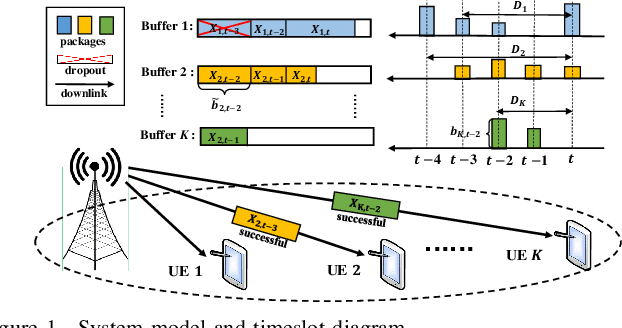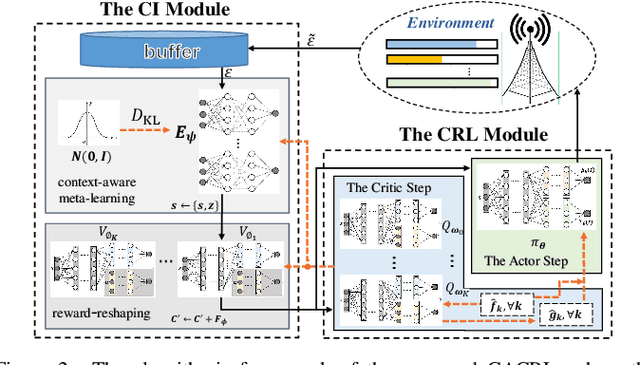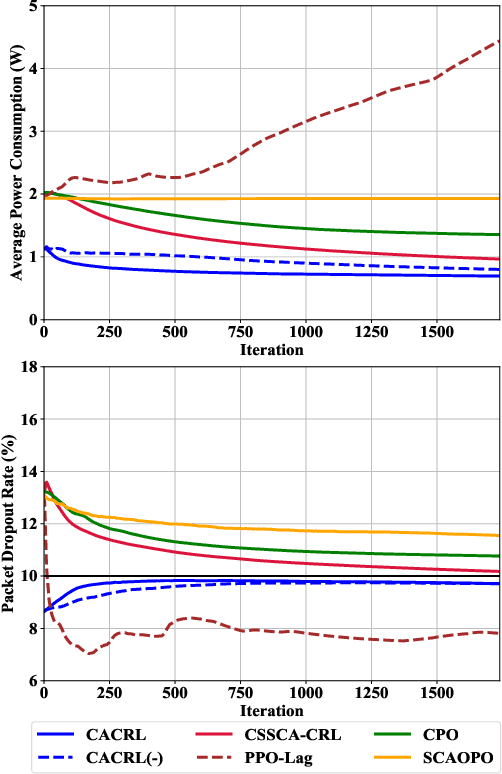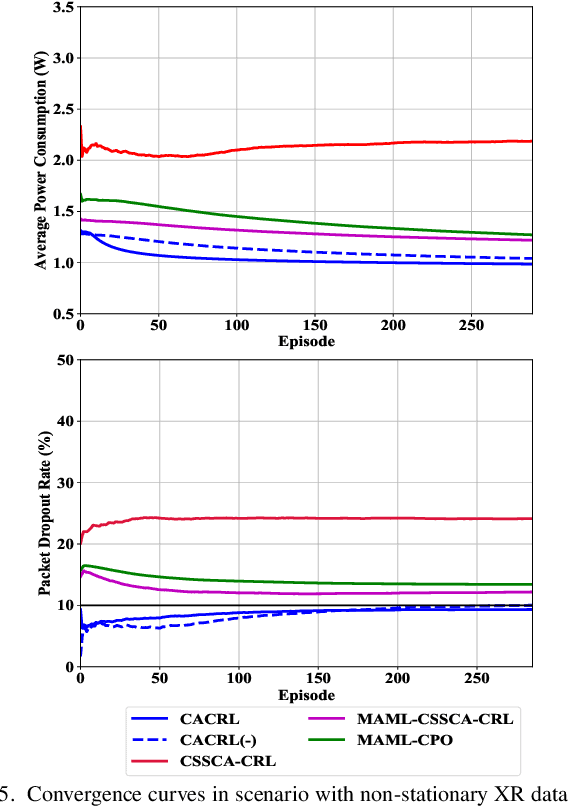Context-aware Constrained Reinforcement Learning Based Energy-Efficient Power Scheduling for Non-stationary XR Data Traffic
Paper and Code
Mar 12, 2025



In XR downlink transmission, energy-efficient power scheduling (EEPS) is essential for conserving power resource while delivering large data packets within hard-latency constraints. Traditional constrained reinforcement learning (CRL) algorithms show promise in EEPS but still struggle with non-convex stochastic constraints, non-stationary data traffic, and sparse delayed packet dropout feedback (rewards) in XR. To overcome these challenges, this paper models the EEPS in XR as a dynamic parameter-constrained Markov decision process (DP-CMDP) with a varying transition function linked to the non-stationary data traffic and solves it by a proposed context-aware constrained reinforcement learning (CACRL) algorithm, which consists of a context inference (CI) module and a CRL module. The CI module trains an encoder and multiple potential networks to characterize the current transition function and reshape the packet dropout rewards according to the context, transforming the original DP-CMDP into a general CMDP with immediate dense rewards. The CRL module employs a policy network to make EEPS decisions under this CMDP and optimizes the policy using a constrained stochastic successive convex approximation (CSSCA) method, which is better suited for non-convex stochastic constraints. Finally, theoretical analyses provide deep insights into the CADAC algorithm, while extensive simulations demonstrate that it outperforms advanced baselines in both power conservation and satisfying packet dropout constraints.
 Add to Chrome
Add to Chrome Add to Firefox
Add to Firefox Add to Edge
Add to Edge